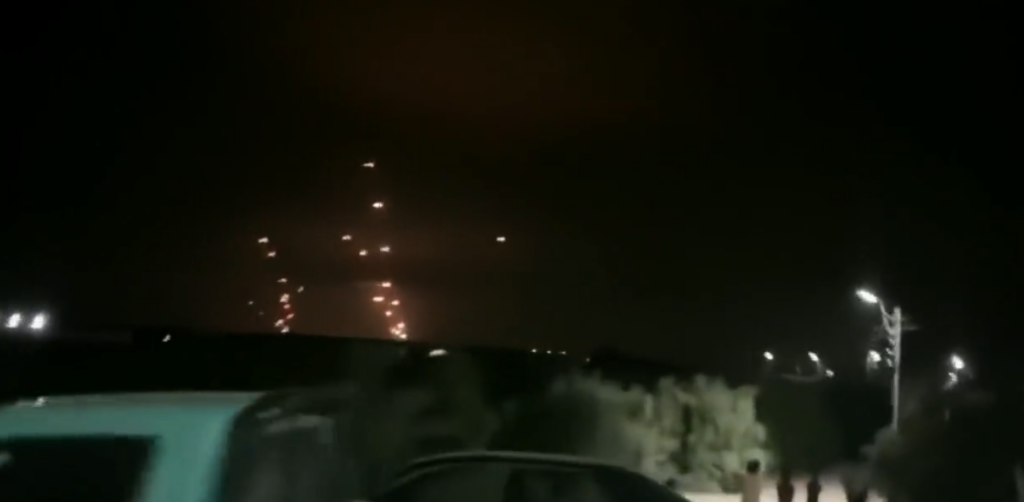Israel, October 07, 2023.

A devastating surprise attack has rocked Israel, leaving more than 300 people dead and thousands injured. This raises the urgent question of how this conflict could have occurred in the first place and how the Israeli intelligence services could have overlooked Hamas' coordination of a massive land, sea and air invasion. In this context, Malte Ian Lauterbach reports on the political situation in Israel and explains why these developments have a significant impact on Israel's security apparatus.
I would like to emphasize that it is too early to draw final conclusions about the causes and context of the ongoing conflict. Nevertheless, we can already identify several factors. To understand how this massive failure of the military and intelligence services came about, we have to travel back in time exactly 50 years, to the time before the Yom Kippur War.
The Yom Kippur War of 1973 was a devastating military conflict in the Middle East that broke out between Israel and a coalition of Egypt and Syria. The war began on the Day of Atonement, Yom Kippur, and resulted in heavy casualties on both sides. Despite initial setbacks, Israel managed to repel the offensive and ultimately reach a ceasefire.
During this period, immediately after the victory in the Six-Day War of 1967, Israel saw itself as a military superpower in the region and was characterized by a certain arrogance. This led to an underestimation of the capabilities of neighboring Arab states and an overestimation of its own capabilities because Israeli intelligence overestimated its own capabilities. Intelligence agencies assumed they had all the relevant information about their enemies' intentions and neglected important clues and warning signs.
At this time there was an internal change of power in Israel's political leadership. Disagreement and rivalries made communication and control of Israeli units difficult. Political considerations, primarily the fear that a pre-emptive strike against the Arab states could trigger international tensions, contributed to the political leadership's hesitation.
The parallels between Israel's complex situation in 1973 and the current situation in 2023 are striking and cause for concern.
Basically, Israel has held an undisputed position of power in the Middle East since the end of the Yom Kippur War. This has been further strengthened in recent decades through political normalization with large parts of the Arab League.
Today, it is groups such as Hamas and Palestinian Jihad that are considered the main threats to Israel's security. Experiences from past conflicts, such as the conflict in May 2021, ensure that Hamas' military capabilities are massively underestimated. (bsn berichtete)
The brief conflict with the Palestinian jihad in the spring of the year led to massive rocket attacks from the Gaza Strip. However, the Israeli Air Force was able to dismantle the PIJ's command structure with massive precision, thereby forcing a ceasefire within days, which undoubtedly increased this effect.
In addition, Israel is extremely divided due to the conflict over judicial reform. The judicial reforms in Israel have plunged the country into deep division and strained Israeli society to its limits. The ongoing protests have not only filled the streets but also sparked a general strike, with various sectors of the country stopping work to support the protesters. This conflict has also shaken the political landscape and severely tested the unity of Prime Minister Benjamin Netanyahu's coalition government.
In recent months there have been repeated reports that the Mossad was supporting protests against judicial reform. These reports inevitably create a lack of trust between intelligence agencies and the government, regardless of whether these reports are true or not.
Equally important is the growing distance between the military and Israel's government. At the height of the conflict over judicial reform - a debate that now feels like it happened decades ago, Defense Minister Yoav Gallant gave a surprise speech voicing his concerns about the reforms. Gallant expressed discomfort with the proposed changes and stressed the importance for Israel's security of preserving the independence of the judiciary and maintaining the delicate balance of power in Israel's democratic system. (bsn also reports here)
He also emphasized the potential danger posed by the current division in Israeli society, saying: "The division in Israeli society can provide our enemies with an excellent opportunity."
Shortly after Gallant's speech on March 26th - which proved bitterly true in the face of the massive escalation six months later, with more than 300 deaths and thousands of injuries - Netanyahu quickly dismissed the defense minister. Only to be called back to office days later, after massive protests. This back-and-forth continues to undermine trust and cooperation within the government and highlighted Israel's fragile political stability.
This lack of trust is now compounded by the fact that many reservists have resigned from their jobs in the context of the judicial reform. As a result, important reconnaissance officers, intelligence officers and analysts who could have noticed the coming events were missing.
In addition, in recent weeks and months Israel has been involved in serious negotiations with Saudi Arabia to normalize relations between Saudi Arabia and Israel. This normalization would attract a major player in the Middle East to Israel's side.
Saudi Arabia has repeatedly emphasized that a solution to the conflict between Israel and the Palestinian Authority in the West Bank would be a crucial factor for normalization. Something that Hamas wants to prevent at all costs, since gaining power for the Palestinian Authority would correspond to a loss of power for Hamas.
Considering all of these complex factors, it is clear that even if there had been clear evidence leading up to the attack, it would most likely have been lost in the turmoil of the system. The multitude of internal and external challenges Israel faces makes it significantly more difficult to identify and respond appropriately to threats. This highlights the need for a thorough review of intelligence and security structures as well as improved coordination between the various actors in the Israeli security system to minimize future security risks.
The last day has clearly shown the fragile sides of the Israeli intelligence apparatus and made it clear that even well-organized and highly developed intelligence agencies are not immune to misjudgments and oversights. It was a hard day that will be remembered for decades, with images that are deeply etched in people's minds, including at Berlin Story News, and will influence Israel's political actions for decades to come.


2 comments